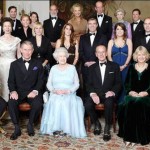The English are very much conscious of their etiquette rules. Therefore, they disregard people who breach good manners at every occasion. ’Excuse me,’ ‘Sorry,’ ‘Please,’ ‘Thank you’ are but some of the few phrases they use more often in their day-to-day work in offices or even at home.
They never disrupt the order of a queue by forcibly taking their place in front of another in the queue. When they receive anything from another, they thank the giver. They respect another’s privacy very much as well. Even friends are not allowed to interfere with personal matters in families. But they welcome even a stranger by shaking hands. Kissing on the cheek and hugging is also counted as good manners when they meet each other.
They disregard those who probe into affairs of others such as their salaries, marital status, ages, and weights. Especially, asking the age of a lady can offend her. They respect punctuality as well. People who arrive late at occasions have enough reasons for embarrassments since they know that others look upon them as undisciplined people.
Visitors to weddings, meetings, conferences and other such occasions try their best to arrive keeping at least 10 minutes ahead to the commencement of the occasion. However, those who arrive at a dinner party very early are also frowned upon. They consider this kind of early arrivals will disrupt the host’s attention on the preparation for the party. They also do not like people who visit their houses without a formal calling.
Invitees for a party should essentially present a gift to the host. They can bring in a bouquet of flowers or even chocolates. In a formal party, the guests have to comply with table manners. They are required to use cutlery at the table, and it is customary for the guest to use his or her right hand to hold the knife and the left hand for the fork.
The guests are expected to wait till they are served. When the host starts eating, that indicates the guest can also commence eating. It is overly impolite for someone to reach for an item of food over another’s plate at the table. As such, it is advisable to ask someone to pass over the item rather than disrupting another’s taste buds.
Moreover, the English do not approve of those resting their elbows on the table while eating. Making loud oral noises – yawning, coughing, burping, etc. – while eating, is also considered rude. Likewise, people who engage in conversations with food in their mouth are also looked upon with contempt.
However, the English do not learn etiquette as such, but they have inherited them from their ancestors. In the past, English ladies attend classes more often to learn proper table manners and other social etiquette. While the Upper and Middle Social classes had to follow social etiquette strictly, the lower classes did not exhibit much regard towards complying with every manner of social etiquette that society deemed it as necessary they follow.
At present, many in England do not follow etiquette at parties, meetings, and such events. Now England has a multicultural society. The citizenry comprises of people of many nations, religions, customs, and castes. However, everyone try to follow corporate etiquette to the letter because they know that in high business society they will not be accepted if they ignore those manners.
Due to the advent of the Internet, an entirely new social system now exists in Britain. Emails, blogs, and forums follow internet etiquette very much since there may be difficulties in understanding some phrases that lack internet verbatim. However, with the rise of the number of internet users and people from far away countries, the English now do not strictly follow their centuries old etiquette, but a new approach of mannerism evolves with the times.









